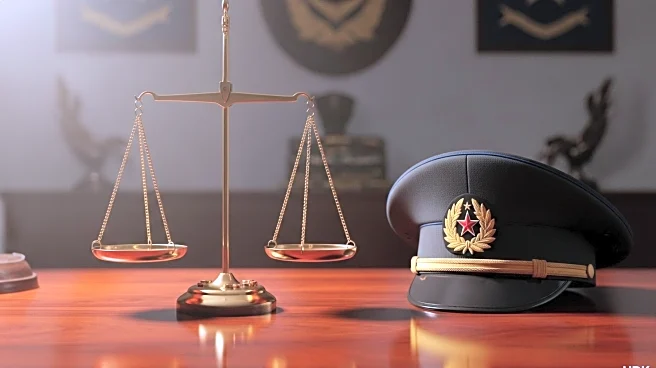What's Happening?
Defense Secretary Pete Hegseth has initiated significant changes within the military's legal structure, including the removal of top judge advocate generals (JAGs) from the Army, Air Force, and Navy. This move is part of a broader campaign to align military operations with civilian law enforcement priorities, such as immigration enforcement and drug interdiction. Critics argue that these changes undermine the rule of law within the military, as JAGs traditionally provide independent legal advice on the legality of orders. The purge has raised concerns about the military's ability to resist questionable orders and maintain its legal integrity.
Why It's Important?
The restructuring of the military's legal framework under Hegseth's leadership has profound implications for military operations and governance. By sidelining independent legal advisors, the administration risks eroding the military's adherence to the laws of war and its constitutional obligations. This shift could impact military readiness and its capacity to deter adversaries, as resources are redirected towards domestic law enforcement. The changes also raise ethical concerns about the use of military force in civilian contexts, potentially leading to increased militarization of domestic issues and undermining public trust in military institutions.
Beyond the Headlines
The purge of JAGs reflects broader tensions between military and civilian priorities, highlighting the challenges of balancing national security with domestic law enforcement. The move may signal a shift towards greater executive control over military operations, raising questions about the separation of powers and the role of legal oversight in military decision-making. The implications extend to international relations, as the U.S. military's legal integrity is crucial for maintaining global alliances and upholding international law. The changes could also influence military culture, as the emphasis on civilian law enforcement may alter traditional military values and practices.









